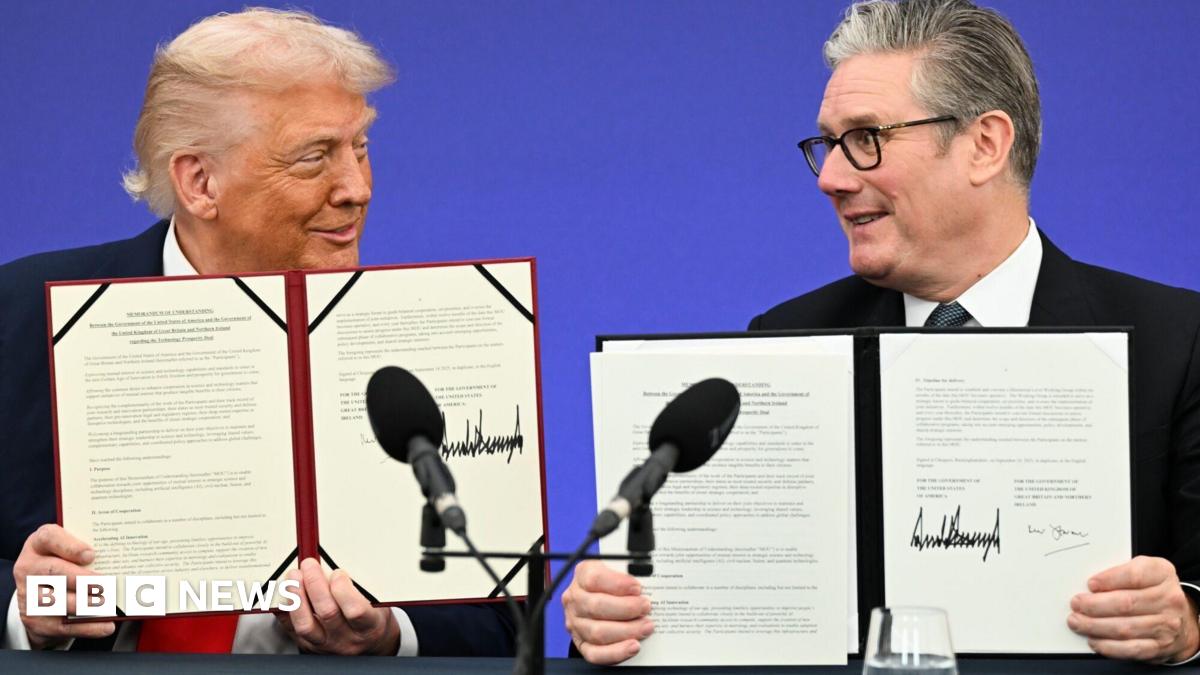Despite important foundational work in this area being done by the previous government, under Rishi Sunak and Jeremy Hunt, it is clear that this company felt burnt by its treatment, and were delighted to engage when Kyle turned up in his T-shirt in Silicon Valley last year.
This may, however, point to the eventual consequence of this UK-tech bromance. It may help explain the “pro-growth” direction given to regulators, including the firing of the chair of the CMA in January.
This flood of US capital thinks it is getting a safe and secure home in the UK, at least, safer than anywhere else in Europe.
The consequences could be the UK economy becomes a tech laboratory for the world, or perhaps mainly the US giants. The state visit certainly seemed to have an undertone of the UK joining forces with the US in a long term AI tech battle with China.
Huang said this was not a “zero sum game”. “President Trump wants to win and so does President Xi. It’s possible they both can.”
So on its own terms, this week showed the government successfully attracting significant investment that will help grow the economy. That does not solve the immediate challenges in the public finances, for example, ahead of the Budget.
The US, even San Francisco for example, can show that tech-fuelled booms often leave many others behind.
There are obvious questions about the widespread rollout of AI already impacting certain industries, and entry-level graduate jobs. Before AI becomes a mass creator of jobs, it will visibly cost those of clerks, junior accountants, paralegals, and creatives.
But the biggest boost might be a sense of optimism created for the UK.
The UK is now all in on AI. Britain will become increasingly dependent on this US tech. But the US giants, at the same time, need British knowhow. It could come to define the economy and the country for decades to come.

